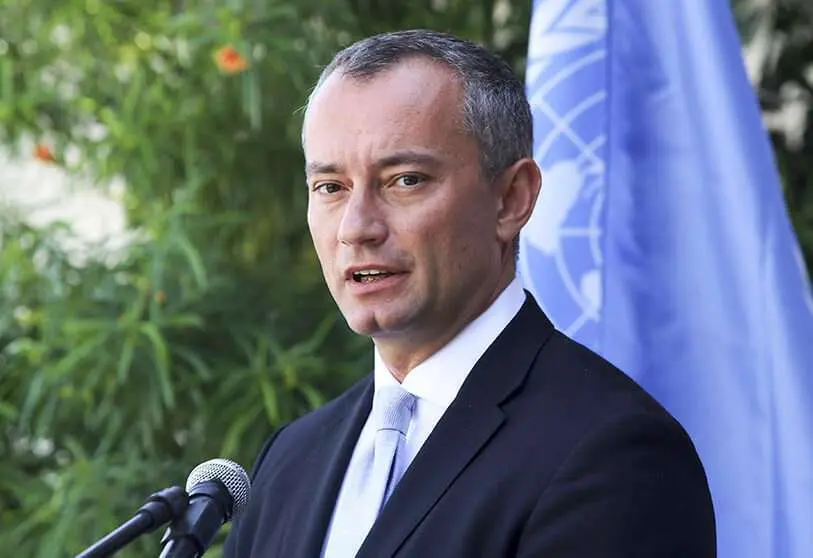UN Security Council replaces envoys in Libya and the Middle East

The United Nations Security Council has given the green light to the appointment of Norwegian diplomat Tor Wennesland as envoy to the Middle East and Bulgarian diplomat Nickolay Mladenov to Libya.
The Bulgarian will replace Stephanie Williams, who took over as acting head following the resignation of the previous envoy, Ghassan Salame, who resigned in March this year. Wennesland, who until his appointment last Friday was Norway's special envoy for the resolution of the Palestinian-Israeli conflict, will succeed Mladenov, who has been UN envoy to the Middle East since 2015.
Mladenov, who is credited with helping mediate in several ceasefire agreements between Israel and Hamas, enjoyed a good reputation in the Hebrew country.
The appointments were delayed for months because the United States was in favour of dividing the role of the envoy in Libya and having one person take charge of the UN political mission while another focused on mediating the conflict. This proposal was finally accepted by the Security Council in September, though Russia and China abstained.

Libya has been in chaos since the 2011 war that ended with the overthrow of Muammar al-Qadhafi. After his fall, no faction has managed to take control of the whole country. There are two governments that declare themselves legitimate, one that of the Government of National Accord (GNA), located in Tripoli, and the other the government of the east with its capital in Tobruk and associated with the Libyan National Army of Marshal Khalifa Haftar.
The conflict that began in 2014 has become internationalised. The ANG, which is legitimately recognised by the United Nations, is supported by Turkey and Qatar. Marshal Haftar's allies include the United Arab Emirates, Russia, France, Saudi Arabia and Egypt.
In October the parties declared a permanent ceasefire, which will lead to greater stability in the region and the Mediterranean. The agreement, which the UN described as a "turning point towards peace and stability in Libya", is the result of the fourth round of peace negotiations in the country, mediated precisely by the United Nations and the Joint Military Commission, in which five military officers from the opposing sides are participating.
As part of the agreement, the mercenaries and foreign soldiers sent by countries such as Turkey and Russia will have to leave the country within three months.
It is hoped that the ceasefire will enable the country to recover a certain stability to try to emerge from the chaos in which it finds itself, especially in the northern zone, where the mafia-trafficking of migrants and the guerrillas are at large.

In the case of Palestine, the new envoy, Tor Wennesland, will have to deal with a region in constant conflict. He will have to continue his mediation work between Palestine and Israel, in a context that is increasingly unfavourable to the Palestinian cause owing to the recent normalisation of relations between some Arab countries such as the United Arab Emirates and Bahrain with Israel.
For the time being, Wennesland will not have to face up to the annexation of West Bank territories that Israel attempted a few months ago and which it stopped in exchange for the normalisation of relations with the United Arab Emirates and Bahrain.
One issue, that of settlements, which the previous envoy, Nickolay Mladenov, warned of, could have triggered a regional conflict that would have been "a tragedy". He furthermore stressed that "the fact that the Palestinians feel there is no prospect of a peaceful solution to the conflict" is something that "would create opportunities for the emergence of more radical sectors with destructive intentions".
The new envoy will also have to face other challenges such as the long Syrian conflict, the war in Yemen, the instability in Lebanon and the tension between Iran and other countries in the region such as Israel.








